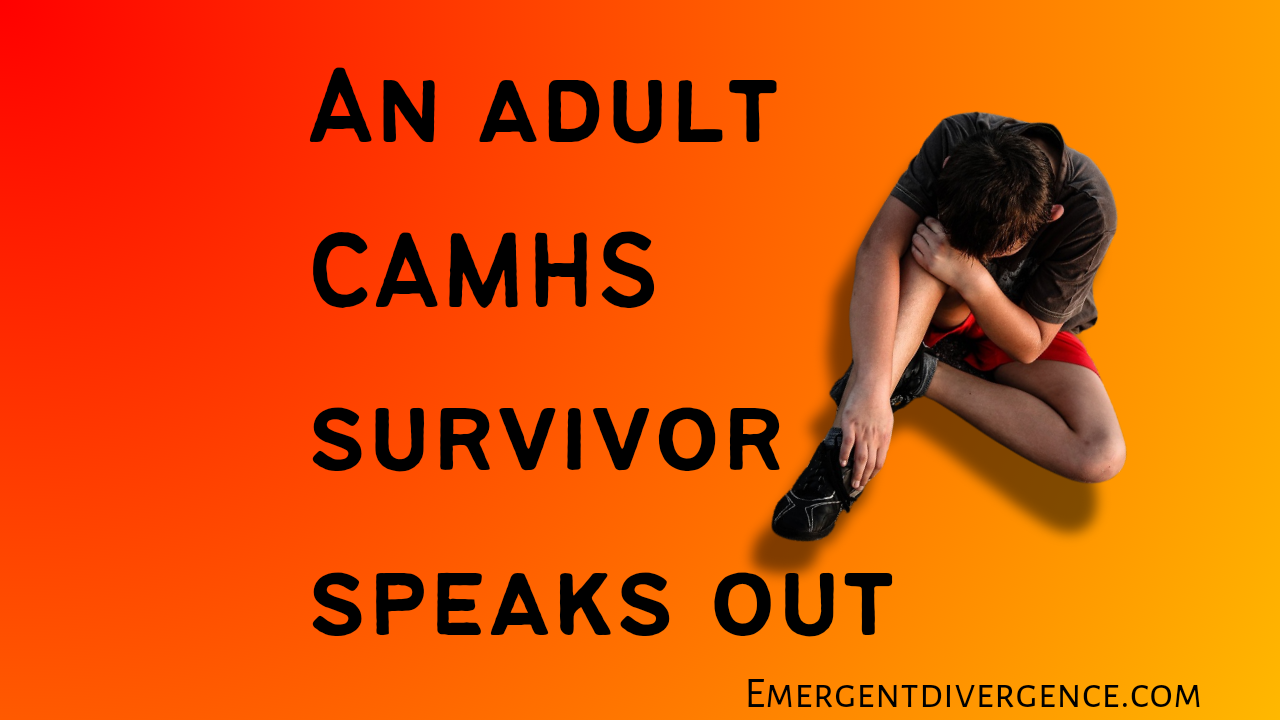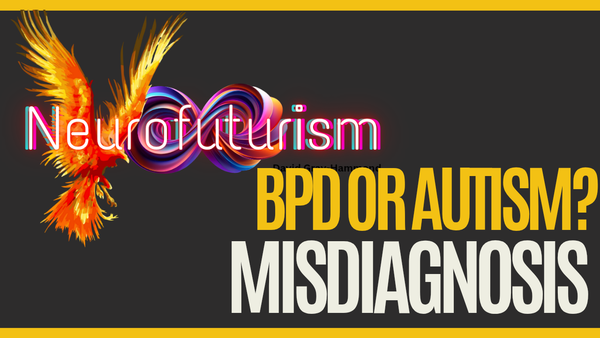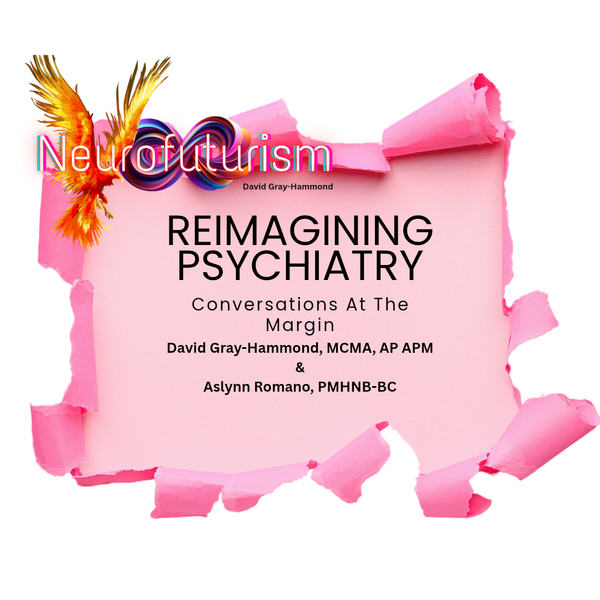I'm an adult CAMHS survivor: Yes I'm still angry about it

Content Warning: This articles contains references to a wide range of subjects that could be difficult to read.
Some might argue that in my mid-thirties I should have come to peace with the event of my younger years. Some probably don't understand why I write about CAMHS so vehemently. The truth is that surviving CAMHS failures led to me experiencing a great many horrible things as an Autistic adult. I wanted to consider how much of my life was lost to unnecessary suffering, and how CAMHS played a role in that. I am very happy with where my life is now, but I am not at peace with the pain I went through to get here. Pain that might have been mitigated had CAMHS given me the support I was entitled to.
Addiction
Had CAMHS engaged with me and explored what was going on in my young life, they might have realised that I was experiencing abuse at the hands of a neurodivergent drug addict. They would have known that children exposed to drug use are more likely to go on to experience problematic drug use themselves. As it was, I learned that suffering could be escaped by drinking alcohol and popping pills.
It seems that this, among other things, made it inevitable that I would go on to develop a drug addiction of my own that very nearly took me from this world. The first eight years of my adult life would be spent in oblivion, with little that felt worth living for. While my peers were starting and advancing in their careers, I was in and out of hospitals, addiction treatment centres, and eventually psych wards.
Psychosis
The onset of my psychosis (that would much later be diagnosed as schizophrenia) was a catalyst for my drug use. Had CAMHS engaged, they would have known that the image of my best friend in an open casket made me only too aware at the age of seven that our bodies don't last forever. They might even have helped me understand that my Grandmother dying after I spent thirty minutes doing CPR on her at the age of 13 was not my fault. They could have unburdened me of the weight of her loss.
CAMHS might have caught my departure from our shared reality. Slowly at first, but then faster and more violently. I wonder if a functioning CAMHS might have spotted the existential terror that was tearing shreds from my mind. I still struggle with my psychotic traits today, albeit much more successfully. Their refusal to engage has led me into a life where I have spent much time questioning my own reality.
Suicide & Self-Harm
I had already tried ending my own life the first time I was referred to CAMHS. By the time they saw me five years later, I was regularly hurting myself and buckling under the weight of suicidal ideation. This probably would persist into adulthood where I would make a number of attempts to end my own life. Coupled with my psychotic delusion of believing I had an implanted microchip broadcasting my thoughts, I would perform surgery on myself to remove an evil I would never have experienced if CAMHS had engaged.
My adult body lives with the visible scars of these years and the long-term health consequences of the damage that I did to it. I look at my toddler and wonder how I will explain the substantial scarring upon my arms, or the reasons why Daddy struggles to run and jump and play. I wasted much of my early adult life on trying to stop my life. I am grateful I survived, but did I really need to suffer this way?
Trauma
Alongside all of this is a life of trauma that I needed help processing. I experienced childhood abuse that to this day I can not publicly discuss the nature of. That same abuse was repeated in my teen years by a drunken acquaintance. Had CAMHS engaged I would have known that I was allowed to speak up against the people who thought it was funny.
Had CAMHS engaged, perhaps they would have seen the Autistic person struggling to find his place in a cruel and desolate world. One that taught him to hate who he was. A world that taught me I would never be enough. A world that made me feel I didn't deserve to be apart of it.
For years, I saw myself as an aberration, a defector. A broken neurotypical. For years, I saw myself as deserving of pain and not worthy of happiness. I know that CAMHS couldn't have fixed all of that, but was it too much to ask that they show me compassion and help me find my way? I am happy now, but that is not thanks to CAMHS. This suffering was never for me, and I lay it at the feet of a service that failed me deeply.


